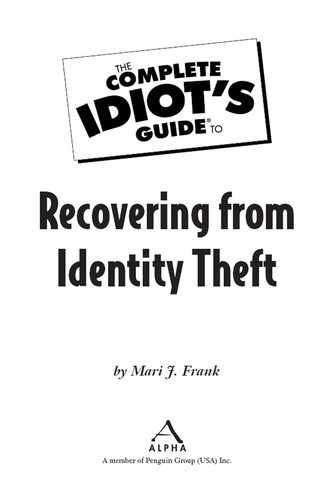Negotiation, Mediation, or a Lawsuit
Be aware that the process of a lawsuit will be time consuming and at times uncomfortable. You will be forced to re-experience all of the pain as you are interrogated in depositions, spend time cooperating with your attorney, lose time from work preparing, and maybe find yourself at your physician’s office due to the stress. It’s stressful on your family and may be a challenge with your work schedule. A court-filed case is a public record, and all the information (hopefully your Social Security number and sensitive data should be redacted in accordance with court rules) becomes available to anyone, including another identity thief. At the same time, if a company has badly injured you and compounded the wrong by not stepping up to its legal obligations, then you may wish to find ways to recover your losses.

Hidden Agenda
Your negotiation power is based on the leverage you have. If you have good evidence, you are a credible witness, you have a legitimate and worthwhile case with compensable damages, and your attorney is articulate and prepared, most reputable companies will seek to settle fairly rather than risk a big loss and bad publicity.
The first approach I always use is negotiation. You of course may have already tried this yourself; however, an experienced lawyer has the arsenal of the law to hopefully bring the opposing party to its senses rather than its knees.
If you have kept copies of your e-mail, written, and recorded correspondence showing evidence of an organization’s unwillingness to investigate, you might have enough ammunition to make it worthwhile for the company or entity to settle at the negotiation stage and avoid public knowledge.
Your lawyer will help you value the case and understand the issues. To help you understand how your case is valued under FCRA, you’ll need to be able to show that you have sufficient damages to make it possible for the attorney to take the case, on contingency, against large companies with ample funds to pay their attorneys to engage in a long-term court battle. Your damages will include such things as an inability to get a car or home loan, credit refusals, loss of a house, a job, or bank funds, and proof of emotional distress. The types of violations for a high-value case would include a credit bureau’s failure to correct credit reports and a creditor’s failure to properly investigate after a bureau provides notice of fraud.
The higher the value of a case, the more likely that companies will engage in negotiations to avoid a public trial. A negotiated settlement will usually include a confidentiality clause in which the company will require that you keep the terms of the settlement confidential and not discuss what happened any further. In some very egregious cases, in which my clients have been very wrongly treated and the companies have acted in bad faith, refusing to negotiate fairly, those clients have spoken to the media. If you are very articulate and honest, and the truth is embarrassing to the company, you may gain an advantage and settle early and positively.
If negotiation fails, mediation is another alternative you can use either before or after a lawsuit is filed. This is a facilitated negotiation in which a neutral third party, usually a lawyer or retired judge, facilitates the process of settlement so that the parties reach a confidential agreement in a written settlement. Mediation is usually less stressful and less expensive than litigation, but both parties must agree to engage in the process. Other benefits are that it is private, usually faster, and confidential. This protects the privacy concerns of all the parties.
..................Content has been hidden....................
You can't read the all page of ebook, please click here login for view all page.
